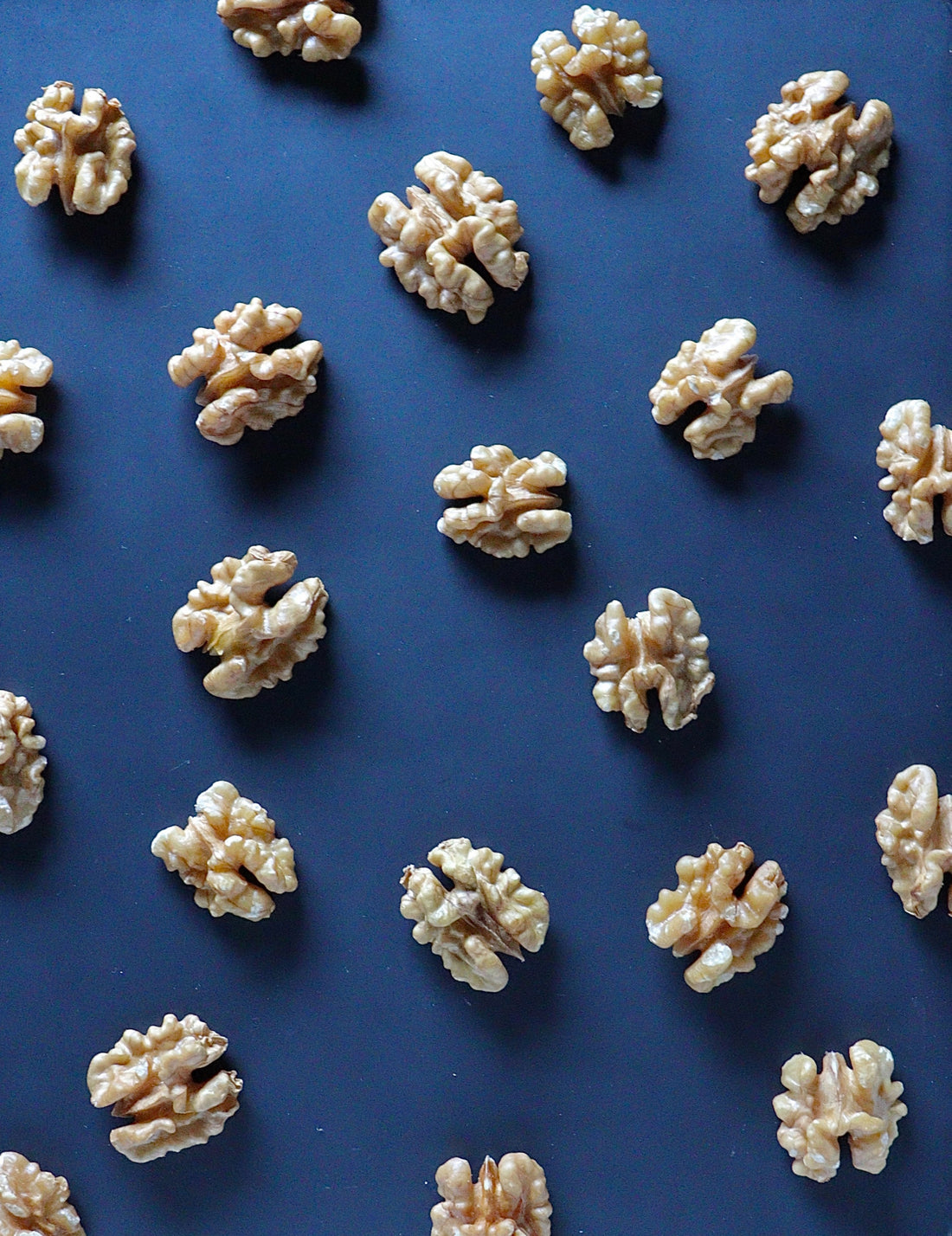
Exploring the mighty health benefits of walnuts
Share
Walnuts, known scientifically as Juglans regia, are not only a delicious addition to various dishes but also a powerhouse of nutrients and health benefits. Originating from the Mediterranean and Central Asia, walnuts have been a valued part of human diets for millennia. This guide delves into the essential facts about walnuts, exploring their nutritional content, health benefits, and versatile culinary uses.
Nutritional Content of Walnuts
Walnuts are predominantly composed of fats, accounting for about 65% of their total weight, and are a good source of protein and dietary fiber. Despite their high-calorie content mainly from fats, walnuts are low in carbohydrates and sugars, making them a healthy snacking option. Here’s a breakdown of what you can expect from a typical 1-ounce serving (approximately 14 walnut halves):
- Calories: 185
- Water: 4%
- Protein: 4.3 grams
- Carbohydrates: 3.9 grams
- Sugars: 0.7 grams
- Fiber: 1.9 grams
- Fat: 18.5 grams
Fatty Acid Profile and Health Implications
Walnuts are particularly noted for their high content of polyunsaturated fats, including a significant amount of alpha-linolenic acid (ALA), an omega-3 fatty acid that makes up 8–14% of the total fat content. ALA is beneficial for heart health, helping to reduce inflammation and improve blood lipid profiles. Moreover, walnuts are the only nuts with a considerable amount of ALA, which is a precursor to the long-chain omega-3 fatty acids EPA and DHA, known for their numerous health benefits.
Vital Vitamins and Minerals
Walnuts are an excellent source of several vitamins and minerals, essential for various body functions:
- Copper: Supports heart health and maintains bone, nerve, and immune system function.
- Folic acid (Vitamin B9): Crucial for many biological functions and essential during pregnancy to prevent birth defects.
- Phosphorus: Plays a significant role in bone health.
- Vitamin B6: Supports the immune system and nerve health.
- Manganese: Mostly found in nuts, whole grains, and vegetables.
- Vitamin E: Walnuts are particularly rich in a form of Vitamin E called gamma-tocopherol.
Antioxidants and Other Plant Compounds
The health benefits of walnuts are amplified by their rich content of antioxidants and other bioactive compounds such as:
- Ellagic acid: This antioxidant, along with its related compounds like ellagitannins, helps reduce the risk of heart disease and cancer.
- Catechin: A flavonoid antioxidant known for its heart health benefits.
- Melatonin: Helps regulate the body clock and is a potent antioxidant.
- Phytic acid: While it can reduce mineral absorption from meals, it also acts as an antioxidant.
Health Benefits of Walnuts
Heart Health
Eating walnuts can significantly affect heart health by lowering LDL (bad) cholesterol, reducing inflammation, and improving blood vessel function. These benefits are attributed to the nuts' favorable fat composition and their wealth of antioxidants.
Cancer Prevention
Walnuts contain bioactive components like phytosterols, gamma-tocopherol, omega-3 fatty acids, and various polyphenols, which may contribute to their potential anticancer properties. Studies have linked regular nut consumption to lower risks of certain cancers, including colon and prostate cancer.
Brain Health
Regular consumption of walnuts has been associated with improvements in brain function and a decrease in the symptoms of depression and age-related decline. While more research is needed to establish these effects definitively, the existing data is promising.
Potential Adverse Effects and Considerations
While walnuts are generally safe and beneficial for most, they do pose allergy risks for some individuals, potentially leading to severe reactions. Additionally, due to their high phytic acid content, they can interfere with the absorption of certain minerals like iron and zinc when consumed in large amounts with mineral-rich meals.
Culinary Uses of Walnuts
Beyond their health benefits, walnuts are incredibly versatile in the kitchen. They can be enjoyed raw or toasted as a snack, and are a delightful addition to salads, pastas, breakfast cereals, and baked goods. Walnut oil, although pricey, is a flavorful choice for salad dressings and to enhance finished dishes.
Conclusion
Walnuts are a nutrient-rich food that offers significant health benefits, including enhancing heart health and potentially reducing the risk of cancer and boosting brain function. Their versatility in culinary applications further makes them a valuable addition to a balanced diet. Integrating walnuts into daily meals can be an enjoyable and beneficial part of maintaining overall health.